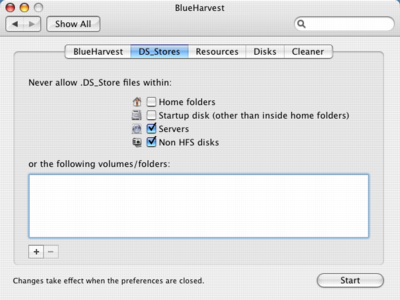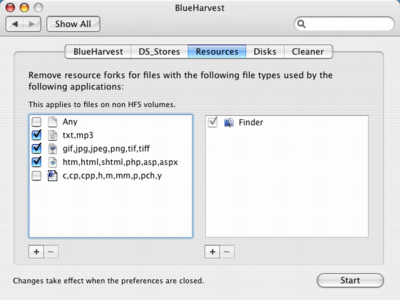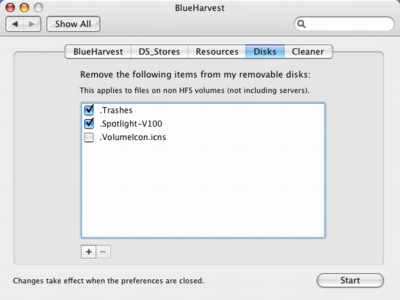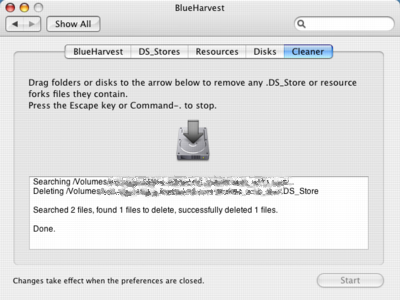Unlike the “ classic ” Mac OS , OS X does Windows . Out of the box , you’re able to well plug into to Windows waiter and shares . However , as any Windows - centric IT person will tell you — vehemently — OS hug drug is n’t necessarily the dear neighbour in the web Neighborhood . Every sentence you get at a remote Windows share ( or an NFS intensity ) , Mac OS X give behind . DS_Storedetritus — files that are utilitarian , but invisible , to Mac OS XTC while being useless , and entirely seeable , to Windows drug user . In addition , if you imitate a data file with a Mac OS imagination fork to a non - Mac book , that resource fork is copy as a 2nd file ; for instance , if an image namedIMG_0995.JPGhas a Finder thumbnail — which rest in the file ’s resource crotch — copying that image to a non - HFS volume will leave intwofiles being created on the volume : IMG_0995.JPGand._IMG_0995.JPG . You wo n’t see the second file cabinet , but Windows drug user ( and , count on the system , Unix and Linux users , as well ) will .
Now , there are many way to “ fix ” this trouble ; for example , a number of product I covered in my roundup of OS ex “ pluck ” utility can retroactively remove .DS_Store files from folders and volume . And Apple provides aTerminal commandyou can run to prevent especial user accounts from creating .DS_Store Indian file on remote volumes in the first place ( although it does n’t prevent the creation of resource - crotch single file ) . But if you ofttimes interact with non - Mac servers and portion , an easy — and more comprehensive — choice is ZeroOneTwenty ’s $ 10BlueHarvest 1.1 ( ) .
BlueHarvest , which work as a Mac OS X System Preferences pane , provide a figure of options for keep non - Mac servers and book free of Mac OS XTC litter . First and foremost , it can automatically prevent .DS_Store files from being created . ( really , it waits until they ’re create and then deletes them immediately — according to the developer , this is a dependable way to handle the situation . ) But instead of a cover approach , you choose what types of directories should be .DS_Store - detached : distant host ; all non - HFS disks ( such as flashgun drive , digital camera media , Windows - initialise FireWire and USB drives , and even Boot Camp partition on your own Mac ) ; your startup disk ( except for your menage folder ) ; or your base folder itself . you may choose any compounding of these choice , and you may also choose specific folders to keep unclouded .

Another utilitarian alternative is to automatically remove the resource forks from files copied to non - HFS - formatted ( i.e. , non - Mac ) volume . However , because some filesneedtheir resourcefulness forks when used on a Mac , and you may need to copy such file cabinet back to your Mac at some percentage point , BlueHarvest let you curtail this lineament to picky data file type such as .txt , .mp3 , .html , and most prototype files — thing that do n’t store important information in their resource forks . ( Although the BlueHarvest port does n’t make it clear , this option applies only to non - HFS - format volumes , so it wo n’t affect the file on your Mac ’s hard driving . )
Finally , BlueHarvest ’s magnetic disk silver screen lets you get free of several other potentially nettlesome file left behind on non - Mac disks by Mac OS X : .Trashes , .Spotlight - V100 , and .VolumeIcon.icns . By enabling options here , these file will be mechanically deleted from non - HFS removable volumes ( external hard drives , flash drive , and the similar ) . And if an covering you use creates its own litter , you could tally those files to the list so that they ’ll be houseclean up , as well .
What if you wreak with a non - Mac volume before instal BlueHarvest — or you come across a host accessed by another Mac user who is n’t quite as considerate as you ? Simply draw the loudness or folder onto BlueHarvest ’s Cleaner screen and it will get disembarrass of all .DS_Store and resourcefulness - fork filing cabinet it ascertain . ( Be careful with this selection , as it ’s relentless — alloffending files will be delete immediately , regardless of your configurations in BlueHarvest ’s other screens . )

Besides being convenient , BlueHarvest stand out by differentiating between HFS ( Mac ) volume and non - HFS ones , and by giving you extensive ascendence over on the nose which disk debris to edit . It ’s a groovy tool for those who drop set of time working with non - Mac server and volumes .
BlueHarvest requires Mac OS X 10.3.9 or later and is a Universal Binary .

